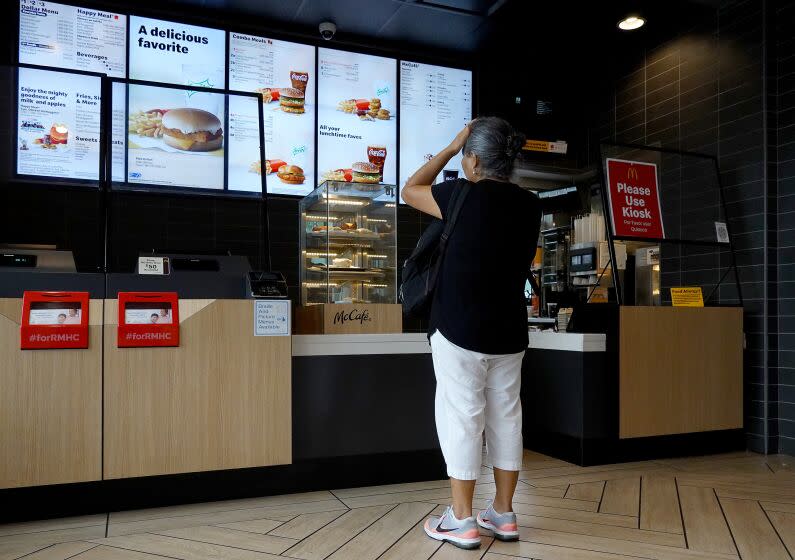Letters to the Editor: Environmental labeling on fast-food burgers is greenwashing

To the editor: The new study showing that customers respond to climate-impact labels on fast-food menus proves that people are hungry for sustainable food choices. But as long as the menus limit choices to beef or chicken, the most climate-friendly option is being left off the table.
Beef is, by far, the biggest climate culprit in our diets. It generates 20 times more greenhouse gas emissions than common plant proteins.
Chicken is an improvement, but it still has more than 10 times the climate impact of beans. It’s also responsible for an enormous amount of air and water pollution that’s devastating to wildlife and rural communities.
Plant-based options are the clear winner for the climate and biodiversity, yet they're still largely absent from fast-food menus. Until that changes, environmental food labels are little more than greenwashing.
Stephanie Feldstein, Portland, Ore.
The writer is the population and sustainability director at the Center for Biological Diversity.
..
To the editor: Even more pervasive than the "saturated fat ethos" that drives the voracious appetite of American burger culture is the "single use ethos" that enables the unexamined consumption of plastic on an increasingly life-threatening scale.
Products in whole aisles of supermarkets that could be (and not so long ago were) packaged in glass, paper or cardboard are now packaged in plastics designated with effectively meaningless recycling codes.
Plastic has infiltrated the food chain to the extent that one study suggests we consume the equivalent of a credit card in plastic each week (see Allison Cobb's book "Plastic: An Autobiography").
If climate-impact labeling of fast food can "empower customers to make more climate-conscious decisions," surely climate-impact labeling of packaging can do the same.
Paul Humphreys, Los Angeles
This story originally appeared in Los Angeles Times.

